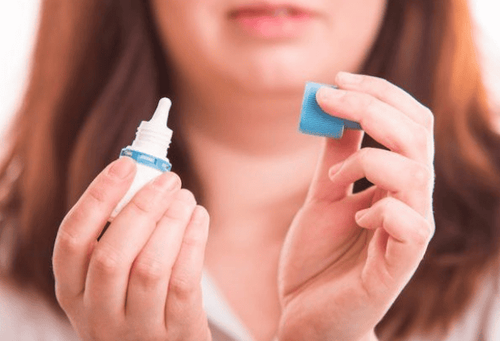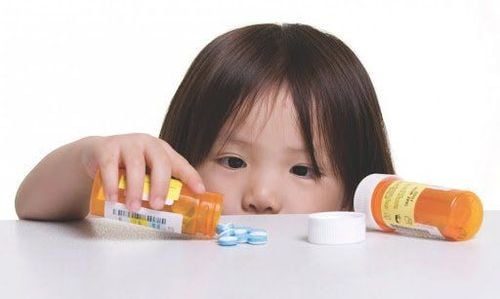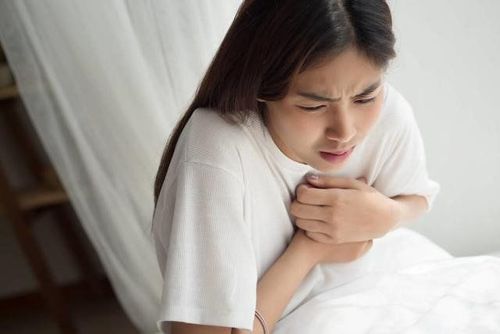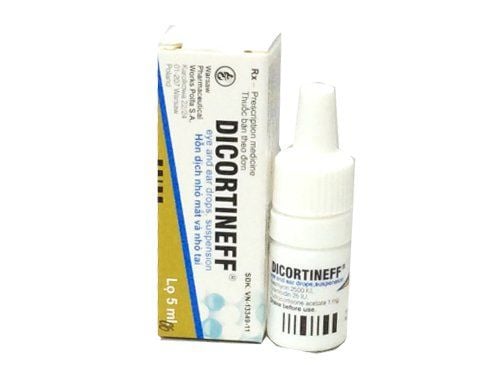This is an automatically translated article.
Acute nasopharyngitis is a viral infection of the upper respiratory tract including the nose and throat that is common in children. There are more than 200 different viruses that can cause this infection, but rhovovirus is the most common cause. Most children will get at least six to eight colds a year, and the times when they are most susceptible are during the fall and winter.
Acute nasopharyngitis in children can be cured in a week or 10 days without leaving any complications. However, in some cases, children may have some complications, so parents need to detect and treat the disease promptly and accurately.
1. Symptoms of acute nasopharyngitis in children
When a child has nasopharyngitis, he or she will begin to feel unwell, followed by a sore throat, runny nose or cough.
At the beginning of the illness, children have a sore throat due to mucus in the throat. After that, children can get Postnasal drip due to bacterial rhinitis that causes fluid to flow from the sinus system through the back of the nose down to the back of the throat, causing throat congestion, sore throat, cough, itching. throat.
Symptoms may be more severe such as:
Mucus in the nose, stuffy nose Watery eyes Sneezing Feeling tired Sometimes fever. The nasopharyngitis virus can affect a child's sinuses, throat, bronchial passages, and ears. In addition, nasopharyngitis can also cause diarrhea and vomiting in children.
At first, the child may be irritable and complain of headache symptoms and feel stuffy nose. After a while, the mucus that comes out of the nose becomes darker and thicker.
2. Complications of acute nasopharyngitis in children
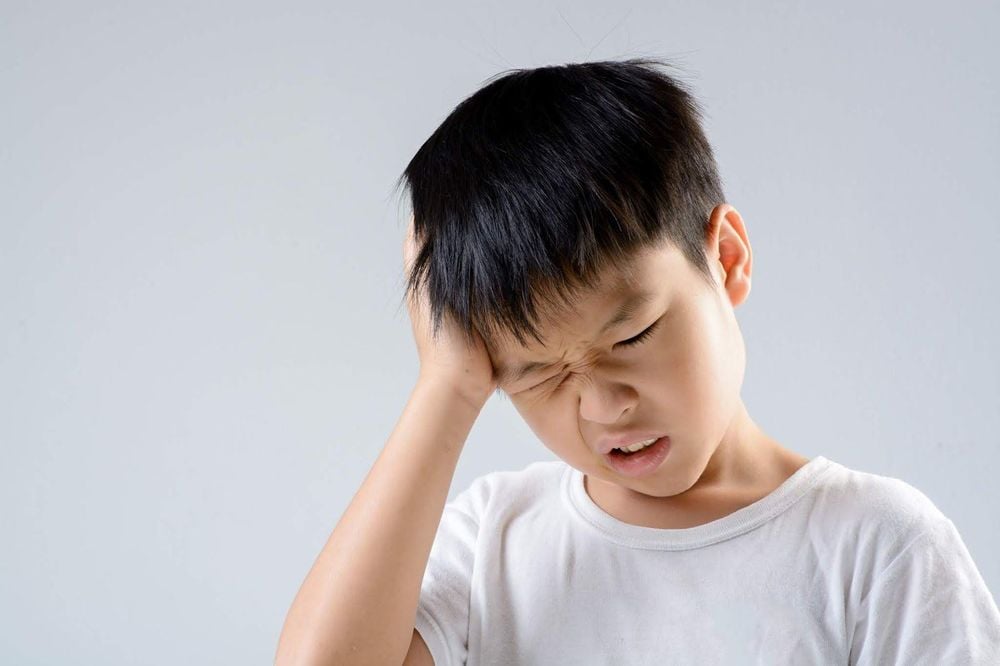
Biến chứng viêm tai giữa xảy ra khi vi khuẩn hoặc virus xâm nhập vào không gian phía sau màng nhĩ
Otitis media . This complication occurs when bacteria or viruses enter the space behind the eardrum. Typical signs and symptoms include ear pain and, in some cases, green or yellow discharge from the nose or a return of fever after nasopharyngitis. Asthma . Nasopharyngitis can trigger an asthma attack in a child. Acute sinusitis. In children, if nasopharyngitis is not completely treated, the infection can lead to inflammation and infection of the sinuses. Other secondary infections include strep throat, acute pneumonia and croup, and bronchitis or bronchiolitis in children. Recommended video:
Tips for treating otitis media for babies
3. What should parents do to prevent complications of nasopharyngitis in children?
The US Food and Drug Administration and drug manufacturers recommend that parents should not arbitrarily use over-the-counter cough and throat medicines for children under 4 such as:
Cough suppressants ( dextromethorphan or DM) Cough medicine (guaifenesin) Anticoagulants to relieve symptoms of nasal congestion (pseudoephedrine and phenylephrine) Antihistamines (such as brompheniramine, chlorpheniramine maleate, diphenhydramine, and others). These medicines are listed on the label for the treatment of nasopharyngitis in children. In general, children should not use cough medicine. Coughing is the body's natural way of getting rid of the virus.
4. When to call the doctor?
Parents should consult a pediatrician if the child does not get better after a few days. Or in the case of a child with a high fever, vomiting, chills and shivering, dry cough, respiratory distress or exhaustion. This could be a possible sign of something more serious, like the flu or a bacterial infection.
If your child has asthma, diabetes, or other chronic conditions, call your pediatrician to talk about medications or other treatments.
Parents regularly monitor signs of complications of nasopharyngitis as mentioned above.
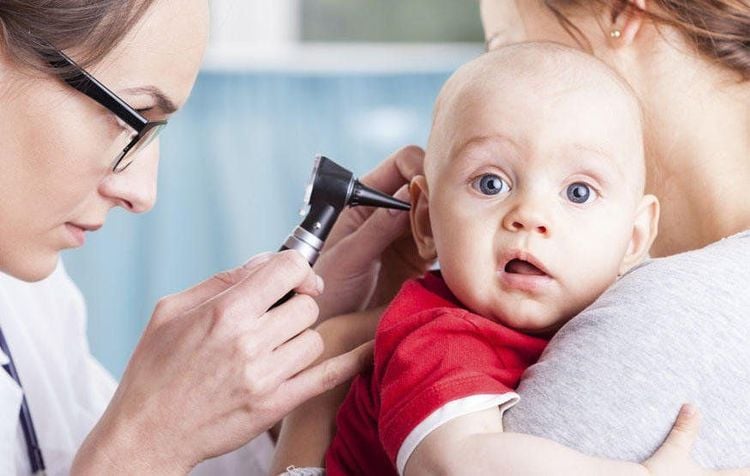
Bố mẹ cần tham khảo ý kiến của bác sĩ nhi khoa nếu trẻ không khỏe hơn sau vài ngày
5. Prevention of nasopharyngitis for children
There is currently no vaccine for nasopharyngitis , but parents can take serious precautions to slow the spread of the virus such as:
Wash your hands. Wash hands thoroughly and often with soap and clean water and parents need to teach children the importance of hand washing. If soap and water are not available, use an alcohol-based quick hand sanitizer. Clean kitchen and bathroom countertops with disinfectant, especially if a family member has nasopharyngitis. Periodically clean children's toys. Sneeze and cough into a tissue. Throw away the used tissue and then wash your hands carefully. Instruct your child to sneeze or cough into their elbow when a tissue is not available. Do not share drinking glasses or utensils with other family members. Use a separate or disposable cup when you or someone else is sick. Limit contact with people with nasopharyngitis or other respiratory diseases. Eating well, exercising and getting enough sleep also help children strengthen their resistance to prevent nasopharyngitis. Vinmec International General Hospital examines and treats common nasopharyngeal diseases, head and neck tumors, congenital malformations of the ear, nose and throat area with the most optimal internal and surgical methods for the disease. individuals, both children and adults. Coming to Vinmec International General Hospital, patients will receive a direct, dedicated and professional examination from a team of qualified and experienced medical staff.
To register for examination and treatment at Vinmec International General Hospital, you can contact Vinmec Health System nationwide, or register online HERE
Reference sources: Webmd.com and Healthline
.




